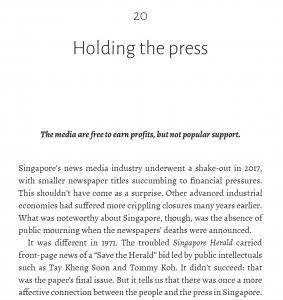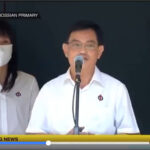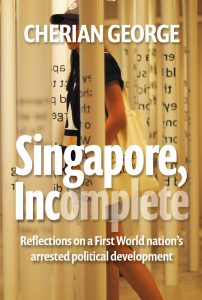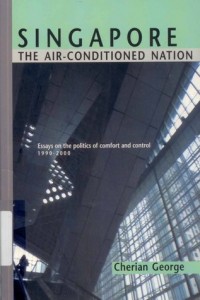DEFENDING PSEUDO-FREEDOM
There are newspapers around the world that struggle for press freedom. There are others at the opposite end of the ideological spectrum, like China’s Global Times, that unapologetically serve as mouthpieces of the ruling party.
The Straits Times in Singapore is in neither category. It operates under laws that compel the press to align itself with the government, which is not its fault — but it tries to deny it. Instead of struggling to be free, it struggles to be seen as free.
In the past week, we saw two such cases.
First, Tommy Koh raised the seemingly obvious point that, in covering politically sensitive and controversial issues (in this case the debate on the income divide and a minimum wage) the press shows a bias for official positions, even if arguments are raised that any unfettered professional journalist would recognise as more newsworthy (in this case arguments by him).
Second, Yahoo! News made public what industry insiders have known for months: that one of ST’s most competent journalists, Li Xueying, was removed from her post as political editor because she was not trusted by some government leaders. Even as the paper should be gearing up for elections that may be called within a year, an already depleted political desk was absorbed into the general news desk, relegating its importance.
In both cases, ST’s official response was a stout defence of its professionalism, as if its critics got it wrong and don’t understand how news organisations work.
This is conformism and self-censorship at an advanced level, where gatekeepers do what’s required of the powers that be while insisting, maybe even believing, that they are acting independently.
And this is exactly what Lee Kuan Yew designed the press system to do. My 2012 book, Freedom from the Press, tried to explain how it works. I also talk about the press in chapter 20 of my 2017 volume, Singapore, Incomplete. I’m releasing that chapter for free here, in appreciation of Tommy Koh and other Singaporeans who still care about the quality of our journalism.








Comments are closed.